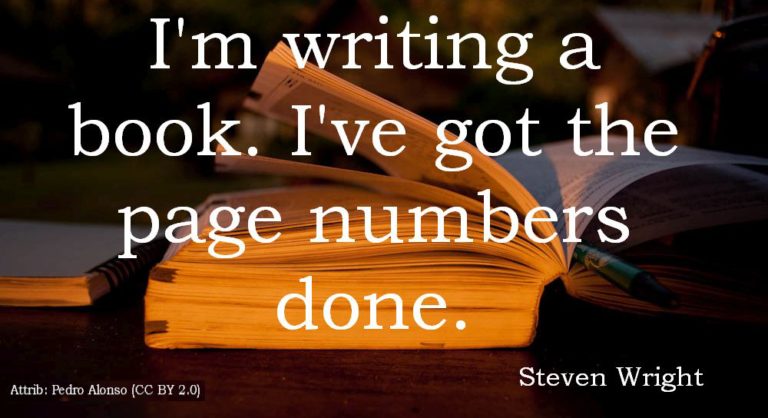It may be rather late in the month to be talking about the new year and all the resolutions we make to be good, to write x million words, to publish something this year if it kills us. I’m pretty sure that some of the other monthly bloggers will have beaten me to it. But still, I thought I might write about why I don’t make resolutions (or at least, not resolutions of that sort), why I don’t set myself unrealistic goals and why I don’t lose sleep over not achieving those I do set.
An anti-resolution post, if you will.
But, in my own defence, I hasten to add this is not a post about apathy or idleness, however attractive the idea of sitting back and putting my feet up while a minion (aka D, the husband) brings me a nice cup of tea and a chocolate digestive. This is a post for those of you who, like me, know that putting an arbitrary hard goal in front of yourself is an instant barrier to actually achieving it.
Let’s take as an example the “I will write two thousand words a day in 2018 and write a book every three months” sort of resolution that far too many writers seem to think is a requirement before they can call themselves a professional author.
My reaction: 2000 words. Okay. I can do that. It’s nothing. It’s the absolute minimum I need to do if I want to sell books—everyone says so. Right then. Fingers poised over the keyboard. Crashing mental silence. Cricket chirping in the vast empty canyons of my creative mind. Gaze wanders vacantly over the screen. Some strange, external force—magic? gravitational attraction? fate?—has the mouse landing on the YouTube tab, and three hours later I’ve done a Steven Wright.
Yeah. Three hours later, I have the page numbers done.
That sort of hard, numerical goal just does not work for me. It’s an instant barrier to be overcome, not a spur to creativity and achievement. So instead of looking happily at another chapter of the immortal novel at the end of the day, I’m consumed with guilt instead. Because I’ve failed. I’m a failure.
And as you might conclude, that doesn’t exactly motivate me to do better the next day, as well as making sure that I avoid NaNoWriMo like the proverbial plague.
So here’s what I do, when it comes to goals.
I don’t say: I’ll write 2000 words a day, etc etc.
I do say: My goal for writing in 2018 is to get work/commitments/dog walking done by lunchtime. Then sit down at the computer for the afternoon and write whatever I can. Some days that will be 2000 (or more) words. Some days that will be 200. Some days I’ll be very focused. Others I’ll wander over to YouTube to watch kittens. Doesn’t matter. What matters is that I’m writing something, I’m happy and relatively unstressed, it’s all progress and one day–maybe not churning out one every three months, but one day, I’ll have another finished book. And that is good and achievable and works for me.
I don’t say: I will read six books a month, every month for a year and chart my progress on Goodreads so everyone can see it.
I do say: “I’ll set aside the half hour after I’ve gone to bed to read. D will be pottering about getting ready for bed, the dogs will be curled up beside me, and that will be my reading time. And since I actually read very quickly, that will build up to a respectable number of books read every year, i won’t be logging the numbers anywhere, and so it isn’t a chore.
I don’t say: I will do five FB posts a day, tweet about my books six times this week, and write 2 blog posts.
I do say: I’ll set aside half an hour at 4 pm each day to stay connected with my FB friends, and take a look at Twitter. If something crops up for a blog post, I’ll write it. And that’s about as much social media interaction as this introvert can cope with…
You get the idea. For me what works isn’t that I set myself a hard, numerical target, but that I organise myself and my work into a process that helps me achieve something. Yes, more driven and goal-oriented people will laugh at my efforts as puny and unambitious, but this is the bottom line for me: I’m doing what I do to be happy and healthy, not creating sticks to beat myself with for not making arbitrary, unrealistic targets.
And I’m good with that.
What about you? What’s your approach to setting yourself a vision for your year?
Anna was a communications specialist for many years, working in various UK government departments on everything from organizing conferences for 10,000 civil servants to running an internal TV service. These days, though, she is writing full time, mainly old-school science fiction and steampunk. She lives deep in the Nottinghamshire countryside with her husband and the Deputy Editor, aka Molly the cockerpoo.
Website and Blog | Facebook | The Butler’s Pantry (Facebook Group) | Pinterest | Twitter | Sign up for Anna’s quarterly newsletter


Yes! I admit I do have number-of-words goals when I’m writing a first draft, but they’re small and easily doable, so they help to make me feel happy instead of stressing that I haven’t finished the book yet.
But having “goals that challenge you” (bleah) or any goal after a first draft, I don’t see the point.
And if there’s anything worse than arbitrary goals, it’s arbitrary deadlines … guaranteed to make me not finish something, ever.
For me, it’s all about not stressing myself out with arbitrary goals. If writing isn’t fun anymore, if it’s just grind grind grind, then I might as well give up and go and grow roses instead.